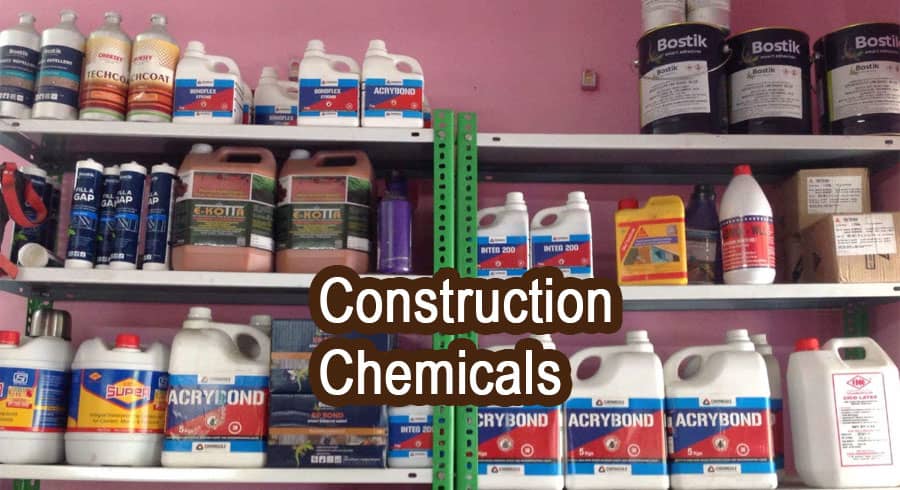Difference between Strip Footings & Pad Footings
The Ultimate Guide To Start a Construction Company in 2022
You need to know about Stone Stairs
How to Design a RCC Cantilever Beam?
Road Estimator & Its Features
Success of Your Project using Connected Construction
Brief Note Calculate Weight of Steel
2400 sq ft RCC Roof Slab
Retaining Wall
Ideas to Quality for Brick Masonry
Steps in Building a House
Quality Tests on Stones and its types
Green Buildings - The Future of Construction
Create Templates in AutoCAD
Some useful tips for reinforcement detailing
Pitched Roof Design and Types
Fineness test of Cement
Surface Drainage Systems
Executive Summary of Intelligent Compaction
Bridge Abutment and Its Types
Building Foundations and its types
A Brief Note on Making a Manhole
Uses of Roofs and Its Types
Consider before your dream building
Some Vital Guidelines to Erect a Bridge
Cutting Length of Stirrups with different Shapes
Maximum bearing capacity of various types of soil
Types of Heavy Equipment used for Construction
A Floor Column's Bar Bending Schedule
Opens the World's Largest Canal Locks in Netherlands
Unsung Hero of Fire Damage Restoration Services
Heliports and Its Types
What You Need to Know about Your Own Fence
Bond Breaker Construction in Under 10 Minutes
Hydrogen Power for the Construction Industry
Pointing in Brick masonry and types
Crack Repairs and Epoxy Injection Techniques
Need to Know about Calacatta Marbles Made Simple
MDF Wood and Its Types
Plinth Beam and its Purpose
A Brief Guide to Rebar Support and Chair
How to Install a Toilet Properly
Purpose & Construction of a Cavity Wall
Design and analysis of Retaining Wall
Different types of BBS shape codes for steel
Differs between beam and lintel as per structural
Top Tips for Crushing Your Vibration Risks in Construction
Build a Solar Access Plan for your Building Site
Construction chemical Names and uses

Construction chemicals are substances or compounds that are used in various construction and building applications to improve the quality, durability, and performance of construction materials and structures. These chemicals serve different purposes and are used for various applications in the construction industry. Here are some common construction chemical names and their uses:
Admixtures
- Water Reducers (Plasticizers): These chemicals are added to concrete to reduce the water content while maintaining workability. They improve the strength and durability of concrete.
- Superplasticizers: Superplasticizers are high-range water reducers used to increase the workability of concrete without increasing water content. They are often used in high-performance concrete mixes.
- Air-Entraining Admixtures: These additives introduce tiny air bubbles into concrete to enhance its freeze-thaw resistance. They are commonly used in regions with cold climates.
- Accelerators: Accelerators speed up the setting and curing of concrete, which is useful in cold weather conditions when concrete needs to gain strength quickly.
- Retarders: Retarders slow down the setting time of concrete, which is beneficial in hot weather or when long transportation times are involved.
Waterproofing Chemicals
- Waterproofing Membranes: These materials are applied to building surfaces, such as roofs and basements, to prevent water penetration.
- Waterproofing Coatings: Liquid-applied coatings that form a protective barrier against water and moisture intrusion.
- Waterproofing Admixtures: Added to concrete mixes to make them impermeable to water and prevent water from seeping through.
Sealants and Adhesives
- Silicone Sealants: Used for sealing gaps and joints in buildings to prevent water, air, and dust infiltration.
- Polyurethane Sealants: Effective in sealing expansion joints, concrete cracks, and gaps in various construction elements.
- Construction Adhesives: Used to bond various construction materials, such as wood, metal, concrete, and plastic.
Mortar Additives
- Mortar Plasticizers: Improve the workability and durability of mortar mixes.
- Mortar Accelerators: Speed up the curing of mortar, ideal for cold weather applications.
Repair and Restoration Materials
- Epoxy Resins: Used for structural bonding, crack injection, and repair of damaged concrete.
- Concrete Repair Mortars: Designed for patching and resurfacing damaged concrete surfaces.
Surface Treatment Chemicals
- Anti-corrosion Coatings: Applied to steel structures to prevent corrosion.
- Concrete Surface Hardeners: Improve the abrasion resistance and durability of concrete surfaces.
Grouts
- Cementitious Grouts: Used for filling gaps, voids, and spaces between tiles, bricks, and machinery bases.
- Epoxy Grouts: Provide high strength and chemical resistance, commonly used in heavy-duty applications.
These are just a few examples of construction chemicals and their uses. The selection of the appropriate construction chemical depends on the specific requirements and challenges of a construction project. Properly chosen and applied construction chemicals can significantly enhance the performance and longevity of buildings and infrastructure.
Structural analysis & steel structure design with LTBeam
The various concepts and procedures of Tremix Flooring
Top 5 affects the Construction Industry because of Inflation
Online 2D Floor Plans and Designs
Various types of Cement you need to know
Spread Footing is what you need to know
Coffered Ceiling: Design your beloved home in a unique way
Flagstone: Choose your stone in effective way for Home Decoration
A Guide instruct to Lay Pipe Culverts
Techniques to Repair Damaged Brick Walls
Know everything about Bow Window
Steps to apply Floor load in Staad pro
Importance of the Construction of the Check Dams
Know about Columns and its types
Sustainability shape bridge construction
